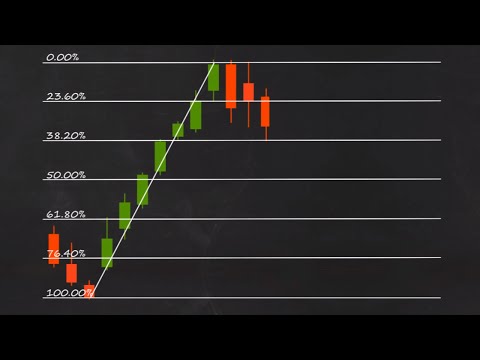
The three main types of brokers that charge brokerage fees are full-service, discount, and online. How much it costs to sell a company is dependent on how you sell your company. A business broker’s fees for selling your company can vary, just as the cost to sell a business through an M&A firm will vary. Full-service brokers typically charge higher fees than discount brokers (and robo-advisors), but they offer more services and hand-holding for beginner investors.
- Before opening an account with a broker make sure to check all the potential fees you will need to pay beforehand.
- Brokers may also widen the spread of the assets available to trade to cover the loss of revenue from the lack of commissions.
- Trading fees from a brokerage can kick in when you’re buying and selling shares of stock, mutual funds or other investments.
- Our estimates are based on past market performance, and past performance is not a guarantee of future performance.
To put it another way, if you’re paying a 1% brokerage fee and your investment goes up 10%, then you’ve effectively given up 1% of your return to the broker. This type of broker offers online trading platforms to its clients. They are a perfect choice for those who just need a place to trade but do not require additional help with their portfolio. If an investor is meant to make payment for an investment by a due date and the payment is delayed without prior information, then you’re going to be charged an additional fee. These fees are otherwise known as late payment fees or penalty fees. The trading cost, which is also known as the transaction cost, is the cost an investor incurs while transacting on the market.
How Much Does a Brokerage Account Cost?
The fees for discount brokerages are less than the full-service brokerages. This is because the discount broker doesn’t offer investment advice. Depending on the type of broker you are with and the account type you have, fees can vary. If you are with a full-service broker, the average fee per transaction will be around $150.
Many online brokerages also offer commission-free trades for select securities. For example, Robinhood provides commission-free transactions for US stocks and Exchange-Traded Funds (ETFs). Brokerage fees are the cost of doing business with a broker and can take away https://1investing.in/ from the returns of your portfolio. When choosing a broker, take the time to assess the services you’re receiving and whether the cost of those services benefit you. Additionally, consider if any other fees are necessary or just in the interest of the broker.
Charles Schwab Futures and Forex LLC does not charge commission on forex transactions nor does it offer commission-based forex pairs. However, the cost of the trade is reflected in the bid/ask spread. Additional information may be found in its NFA 2-36 and CFTC 1.55 Disclosure Document.
Brokerage fees, commissions and costs explained
Keep in mind that the fees may vary according to the type of industry and the broker involved. It’s always a good idea to ask so you know what to expect to be out of pocket before you complete any transactions. In the insurance industry, a broker, unlike an agent, represents the interests of the customer and not the insurer. Brokers find the best insurance policies to meet customers’ needs and will charge fees for their services. In rare instances, brokers may collect fees from both the insurer and the individual buying the insurance policy. Even if they don’t look like a lot on the surface, brokerage fees can add up over time and significantly impact your investment returns over the course of several years or decades.

A good way to see how much brokerages charge in fees and commissions is to use a tool called a brokerage fee calculator. Full-service brokers or financial planners may offer a fee-based service, rather than charging by the transaction, or may work on commissions tied to financial products sold. Full-service brokers provide expert advice and tailored services based on each investor’s needs.
Finally, if you want to learn more about how to buy shares in a company, make sure to read our handy guide. We have been preparing awards lists since 2018, based on a strict methodology. Some brokers will let you do a manual conversion prior to the trade, which might work out better.
If someone is managing your money — whether a human or robo-advisor — you’re likely paying for it. You should weigh commissions on your preferred investments carefully when selecting a broker. This link takes you to an external website or app, which may have different privacy and security policies than U.S.
What Is the Average Brokerage Fee?
A broker fee is usually paid on the day you sign your new apartment’s lease. The broker fee is added to the handful of existing payments you need to settle upfront, namely the security deposit, and your first month’s rent. Since both brokers and agents make a higher profit when you buy more coverage, they have an incentive to upsell.
For example, they may charge higher broker fees for mutual fund trades or require a minimum account balance. Most online brokers have removed specific commission fees for trades on stocks, but commission fees for future trades and options still apply. Account maintenance fees for online brokers range from $0 – $50. Depending on the account and agreement with your online broker, this fee is based on a per-contract or per-share charge. Discount brokers charge a flat fee of $5 – $30 for each trade transaction and an account maintenance fee of about 0.5%.
Typical commissions for selling a business are 10% of the sale price for companies priced at $1 million or less. For Businesses priced over this amount, there’s often a sliding scale with a lower percentage for larger deals. There are different reasons for these approaches, and some are designed to benefit you, and others are designed to benefit the broker.
You can work with a financial advisor to find a balance between the right brokerage and how much you’ll be charged in fees. Other brokerages charge trading fees for stocks but waive them for ETFs, or offer free ETF trades along with no-transaction-fee mutual funds. Some online investment platforms, like Motif Investing, only offer $0 commission fees on next-day trades, meaning it’ll still cost you money to trade stocks or other investments in real-time. A brokerage company charges trading fees for managing different trades, including buying and selling stocks, ETFs, mutual funds, cryptocurrencies, and other securities. It depends on each brokerage company how it’s going to set its fees. For example, some brokers charge only transaction fees for mutual funds, while there are no fees on trading stocks or ETFs.
How Real Estate Agent and Broker Fees Work
M&A firms handle transactions that are often $5 Million to $500Million or more. In the middle are firms that handle deals of $700,000 to $70Million+. In this middle range, there are Business Brokerage firms and also M&A firms. M&A firms typically charge upfront fees, and Business Brokerage firms usually do not charge upfront fees. We do this because we want to be motivated to sell your business, and we feel strongly that we shouldn’t be paid if we aren’t successful.

Because full-service brokers use humans—not robo-advisors—fees tend to be higher for specific advice based on your particular portfolio. The financial industry has gone through significant changes thanks to the internet. There was a time when your only options were to go to a full-service broker. Now, there are so many options from which financially-savvy investors can choose if they want to trade on their own—and often, at a cheaper rate. If you’re impulsive and/or not willing to do your homework, then you should consider a full-service broker.
How Much is a Brokerage Fee?
While they can eat into your returns, they shouldn’t be the only factor you consider when making investment decisions. This fee covers the costs of using the broker’s trading platform and is typically a flat rate. Many brokers charge a monthly or annual fee to maintain an account. This fee covers the costs of keeping the account open, such as providing customer service and offering research and advice. But, if you’re an investor with very minimal knowledge about brokerage fees and how it works, you can always consult a financial advisor for more assistance. They’ll help you understand the basics of brokerage fees and how it’s calculated.
In such a case, it will cost much more to buy, let’s say, $1,000 worth of shares (1,000 x $0.005, or $5), than it would if you bought stocks priced at, say, $100 apiece (10 x $0.005, or $0.05). If you have a trading account but have not used it for a certain period, online brokerages may charge you an inactivity fee. A full-service broker provides its clients with a range of different services such as research and analysis, tax advice, investment advice, portfolio management and financial planning. They do as the name says and provide the full amount of services to their clients. Some examples of full-service brokers are Bestinvest and Hargreaves Lansdown. SmartAsset Advisors, LLC (“SmartAsset”), a wholly owned subsidiary of Financial Insight Technology, is registered with the U.S.
Even a small brokerage fee will add up over time; a few investment fees together can significantly reduce your portfolio’s return. If your portfolio was up 6% for the year but you paid 1.5% in fees and expenses, your return is actually only 4.5%. Many online brokers also charge quarterly fees, which are usually based on a percentage of the assets under management. For example, an average broker fee might be 1% of the assets under management. Some brokers charge a fee if an account is inactive for a certain period of time. This fee is intended to discourage investors from keeping money in a brokerage account without using it.
New Digital Asset Regulations Provide Glimmers of Much-Needed … – Pillsbury Winthrop Shaw Pittman
New Digital Asset Regulations Provide Glimmers of Much-Needed ….
Posted: Wed, 13 Sep 2023 14:36:24 GMT [source]
The majority of discount brokers generally do not offer investment advice. This means that fees tend to be much less than traditional full-service brokers. Trading fees for online discount brokers range anywhere from $4.95 to $20, but most are between $7 and $10. This rate banner advertising examples is subject to change since discount brokers are consistently lowering their fees in order to attract more customers and gain market share. In the financial securities industry, a brokerage fee is charged to facilitate trading or to administer investment or other accounts.
With the low-commission option, you’d pay 12 commissions of $1, or $12 per year. Add the $100 annual fee, and the total costs add up to $112 for the year. But if you go with the higher-commission option, paying 12 commissions of $5 gives you total costs of just $60 — a savings of almost half. †No-Transaction-Fee (NTF) mutual funds are no-load mutual funds for which TD Ameritrade does not charge a transaction fee. Mutual funds have other fees, and expenses that apply to a continued investment in the fund and are described in the prospectus. Online brokers generally allow investors to conduct online trading.
